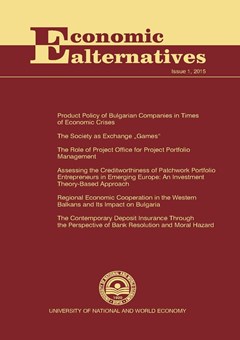Assessing the Creditworthiness of Patchwork Portfolio Entrepreneurs in Emerging Markets: an Investment Theory-Based Approach
Author: Polina K. Kirilova
Abstract
Many portfolio entrepreneurs can only sustain their financial independence by engaging simultaneously in more than one business enterprise. Furthermore, diversifying their income sources may enable them to withstand economic turbulences more easily than entrepreneurs that are solely dependent on one company. This paper addresses the specific issue of how this so-called patchwork entrepreneurship affects the creditworthiness of entrepreneurs striving to endeavour in additional business in difficult economic situations (e.g., in emerging markets). The focal point is the local bank, which is being approached from an existing entrepreneurial customer seeking further debt financing to extend the business portfolio. The described situation (credit analysis) is considered a supplementary function within the purpose-oriented business valuation theory. Therefore, the investment theory-based model for the central business valuation purpose (decision function) is taken as a basis and adjusted to the special requirements of the presented problem.

